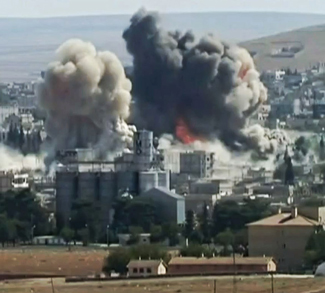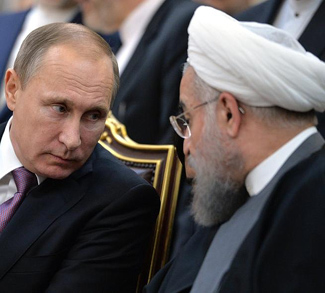Summary
Recent reports detailing arms shipment from Eritrea into Somalia are a stark indication that Islamic extremist elements within Somalia may have found a powerful patron.
Analysis
According to the Somali government, Eritrea has been actively arming al Shabaab militants, an extremist faction that split off from Somalia’s former ruling militia, the Union of Islamic Courts (UIC). Assistance has purportedly come in the form of “plane loads of AK-47s, rocket-propelled grenades, and other weapons.” If these accusations prove to be true, Eritrea is playing a dangerous game that will result in a swell of global condemnation led by the United States. Consequently, the Inter-Governmental Authority on Development (IGAD), a coalition of East African states, has already started rallying calls for UN sanctions on Eritrea.
While it is probable that they would have preferred their support to remain clandestine, Eritrean officials have most likely calculated that international condemnation is an acceptable consequence of continuing their proxy war against Ethiopia in Somalia. By providing material support to anti-Ethiopian groups within Somalia, Eritrea is hoping to provoke an eventual Ethiopian military incursion similar to 2007, when Ethiopian troops invaded Somalia to topple the UIC government.
Eritrean motivations are complex, and largely stem from the Ethiopia-Eritrea war of 1998-2000. The resulting peace agreement was never properly implemented, leaving several of the border towns awarded to Eritrea under Ethiopian rule. The most important of these border towns is Badme. For Eritrea, applying pressure on Ethiopia through the proxy of Somalia is a way to push the issue of an Ethiopian pullout from Badme without risking open war.
Antagonizing American interests in the region is also seen as a positive by-product of Eritrean support for Somali militants. Washington has a stake in fostering a stable Somali government that can alleviate American security concerns such as Somali piracy and the spread of Islamic extremism in a lawless Somalia. Anti-Americanism has been running high in Eritrea because of the United State’s role in the Ethiopia-Eritrea peace settlement. The United States was supposed to act in the capacity of guarantor for the border agreement that awarded Badme to Eritrea, but has instead supported Ethiopian efforts to stall and circumvent the handing over of control.
The current state of Somali politics presents a heightened risk that Eritrean meddling could incite large scale conflict. When Ethiopia invaded in 2007, the leadership of the UIC split, with the more extremist Sheikh Hassan Dahir Aweys fleeing to Eritrea and the moderate Sheikh Sharif Sheikh Ahmed staying behind and eventually becoming the current president. Now, Mr. Aweys has returned to Somalia refusing to enter negotiations with his former comrade. It is speculated that his goal is to align with al Shabaab in an effort to re-take power. Such efforts could very well prove successful given the current Somali government’s tenuous grip on power. It controls only one major road in Mogadishu and relies heavily on a detachment of AU troops for military support.
While Somalia is no stranger to war and anarchy, a large scale conflict under the banner of al Shabaab poses a substantial security dilemma for the United States. Al Shabaab is an extremist splinter of the UIC, which was an organization with moderate elements that believed disassociating the UIC from the worldwide jihadist movement could garner Western support, if not impartiality. Al Shabaab militants however have no such qualms, and furthermore have already been observed operating with foreign fighters of “South Asian and Chechen descent” in their midst. Thus, al Shabaab seem more than willing to link conflict in Somalia with the worldwide jihadist movement, thereby inviting Al Qaeda support for their fight against the Somali government.
Zachary Fillingham is a contributor to Geopoliticalmonitor.com



